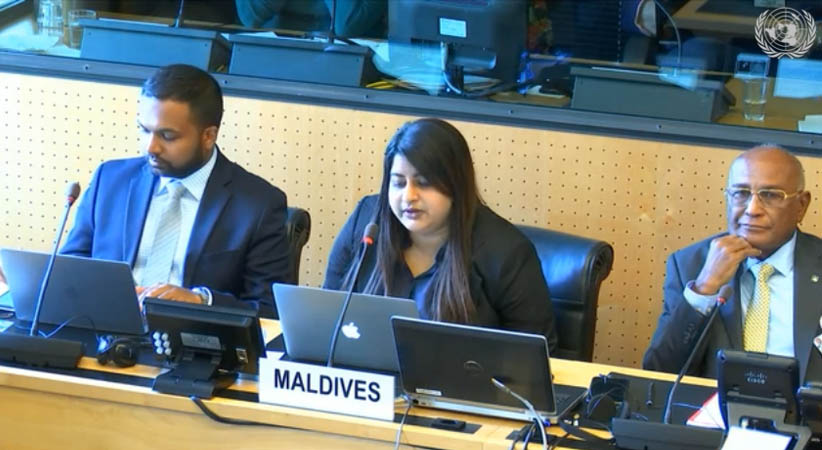While India consistently refuses to ratify the UNCAT despite signing the same in 1997, tiny Maldives had ratified the Convention and on 28 November 2018, the UN Committee against Torture (CAT) considered the initial report[1] of Maldives on its implementation of the UNCAT.[2]
Introducing the report, Maldivian representatives stressed that the newly formed Government had replaced the highly repressive authoritarian regime and that its challenge now is to rebuild democratic institutions, restore the separation of powers and checks and balances, and rebuild an independent judiciary. The CAT was informed that reforming prisons and eliminating the gap in the implementation of the laws prohibiting torture will be accorded priority, and cooperation with the Human Rights Commission of Maldives shall be enhanced in the review of past cases of torture. The Maldives also informed that reports of torture and inhuman and degrading treatment during the states of emergency declared in 2015 and in 2018 would be properly investigated and examined. It also reiterated that the new Government would uphold the 65-year moratorium on the death penalty and review the question of the abolition of the death penalty very carefully, raise the age of criminal responsibility to 18, and enforce and implement with full effect laws such as the Sexual Offences Act, Prevention of Sexual Harassment Act, and the Domestic Violence Act.[3]
The CAT experts welcomed the policies and commitments announced by Maldives, and especially the commitment to address impunity for torture, which was the most serious concern, considering that, since the entry into force of the Anti-Torture Law, there had been no convictions for the 223 allegations of torture, made mostly against police and prison correction officers. The experts also commended the setting up of a Commission on Murders and Disappearances to establish trustworthy investigations, and urged the new administration to ensure that it could carry out its work unimpeded by the police, prosecution or State authorities.[4]
However, the Committee expressed its concern on the lack of an independent judiciary, and stated that there was a need to reform institutions involved in criminal justice, notably police and prosecution, and increase their cooperation with the Human Rights Commission of Maldives in the investigation of complaints of torture and cruel treatment. The Committee also observed that Maldives should strengthen the protection of victims of domestic violence and the implementation of the Domestic Violence Act, reform the legal provisions which exculpated perpetrators of child sexual abuse against married girls, and abolish corporal punishment, including flogging of children and victims of rape.[5]
Endnotes:
[1]. Initial Report of Maldives available at: http://docstore.ohchr.org/SelfServices/FilesHandler.ashx?enc=6QkG1d%2fPPRiCAqhKb7yhsnnuxrRvSTT6M%2baQMnCBV5ZMVJ2NdSdvR8wylYRECBvmveo0l
F31jWsRZxjkL%2bMmW8VLaFzvw1ediuFRcM8tg521d04T6psTxPQ8%2bU1%2b56FZ
[2]. Committee against Torture reviews the initial report of Maldives, OHCHR, 28 November 2018, https://www.ohchr.org/EN/NewsEvents/Pages/DisplayNews.aspx?NewsID=23951&LangID=E
[3]. Committee against Torture reviews the initial report of Maldives, OHCHR, 28 November 2018, https://www.ohchr.org/EN/NewsEvents/Pages/DisplayNews.aspx?NewsID=23951&LangID=E
[4]. Committee against Torture reviews the initial report of Maldives, OHCHR, 28 November 2018, https://www.ohchr.org/EN/NewsEvents/Pages/DisplayNews.aspx?NewsID=23951&LangID=E
[5]. Committee against Torture reviews the initial report of Maldives, OHCHR, 28 November 2018, https://www.ohchr.org/EN/NewsEvents/Pages/DisplayNews.aspx?NewsID=23951&LangID=E

